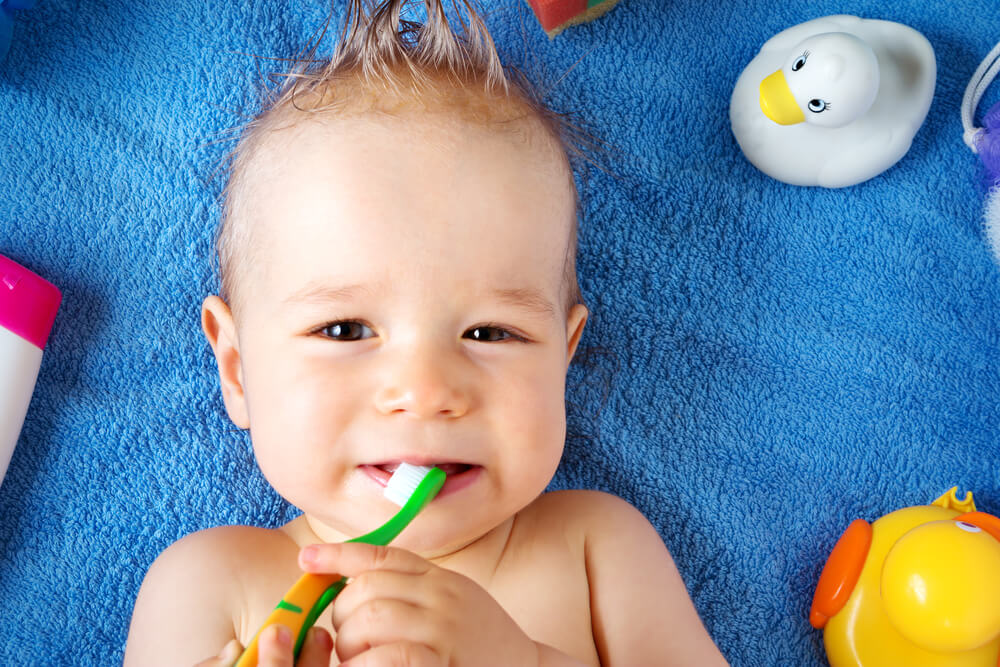
The Abc’S Of Dental Hygiene For Toddlers
1 Jul 2022 | 3 min Read
Tinystep
Author | 2574 Articles
Dental hygiene is one of the many good habits that you should embed into your child from a young age. Simple steps taken towards maintaining good dental hygiene from childhood can help ensure the same in the future. Parents, the the child’s consistent role model, are key for setting a good example to the child and for setting a routine that the child follows daily.
How to care?
This is a rather simple thing to do as kids tend to be at your disposition at this age. You can set a routine for them as you seem fit and you have a great role to play as the role model. Teach your kids the importance of brushing and flossing. It is also advisable to supervise your kids in this aspect until the age of 6. Things like the amount of toothpaste they use (children until the age of 6 should use only a pea-sized amount) should be monitored. Also, they mustn’t swallow the toothpaste. When they are very young (until age of 4) assist them with their brushing, hold the brush itself or hold your child’s hand and facilitate the proper movement. While cleaning the outside surfaces of the teeth, angle the brush’s bristles toward the gumline. When brushing the chewing surface of the teeth, place the brush on the underside of the teeth and brush gently back and forth.
Does diet have an effect on dental hygiene?
Sugary food stuffs like candy, chocolate, sweets, cookies and drinks fruit juices, soda, and sweetened drinks have a negative impact on dental hygiene. Avoid giving your child a lot of sugar in their diet, as this causes cavities. It is suitable to give your child sweet stuff as a reward.
Baby bottles are another cause for cavities. When your child drinks liquids out of a bottle, it stays in contact with his/her teeth for a longer time than usual, causing the sugars in the drink to decay their teeth. This is a condition called bottle mouth. It is a good idea to have your child using a drinking cup after their 1st birthday.
How often do you go to a check-up?
Most dentists say that kids should start visiting them from the age of 2. This not only gives the doctor a chance to monitor the dental growth and development and identify early dental problems (if any), but also helps parents learn about tooth development and other information about maintaining a healthy dental and oral hygiene. It is important to emphasize how important dental visits are to your child. This will foster a positive attitude towards dentists and will increase the chances of your child regularly visiting dentists even when he/she grows up.
Thumb-sucking – Is it actually a problem?
Thumb sucking is a normal habit in children that usually disappears by the time the child is 4 years old. Until the development of your child’s permanent teeth, it doesn’t cause any problems, but if your child keeps sucking their thumbs during the development of their permanent teeth, then it can cause the front two teeth to grow in such a way that it points outward. There are many ways in which thumb sucking can be stopped. Usually positive re-enforcement does the job. It is nice to reward them every time they don’t suck on their thumbs. If that doesn’t work, coating their thumbs with bitter medicine will do the trick. Make sure you take the doctor’s recommendation on which medicine to use.
A


Suggestions offered by doctors on BabyChakra are of advisory nature i.e., for educational and informational purposes only. Content posted on, created for, or compiled by BabyChakra is not intended or designed to replace your doctor's independent judgment about any symptom, condition, or the appropriateness or risks of a procedure or treatment for a given person.
